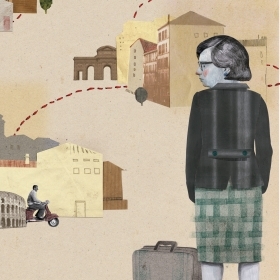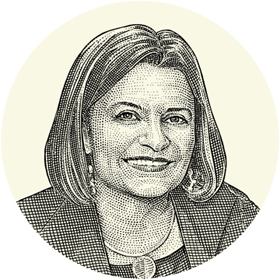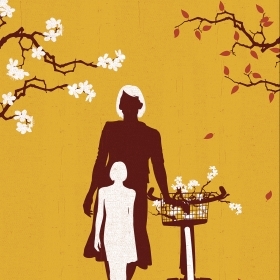Letters to My Younger Self
If we only knew then what we know now…. As the class of ’15 launched out into the world, we asked eight wise women, all Wellesley alumnae over 50, to write a letter to themselves as they graduated from the College. What advice would they share for the long road ahead?
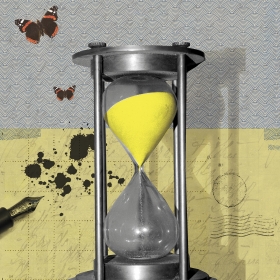
If we only knew then what we know now…. As the class of ’15 launched out into the world, we asked eight wise women, all Wellesley alumnae over 50, to write a letter to themselves as they graduated from the College. What advice would they share for the long road ahead? Their words — and their compassion for their younger selves — have relevance for all of us, whether we’re just starting out or are veterans of life’s journeys.
Ophelia Dahl CE/DS ’94 / Cambridge, Mass.
Cofounder, former executive director, and current board chair of Partners In Health, a Boston-based nonprofit; chair of the Roald Dahl Literary Estate, which manages the work of her late father.
Dear Ophelia,
Many of the tools you will need to make a difference in the world have been in your hands since you were in your 20s, maybe even earlier. But it may take you another 20 years to realize it.
Let me tell you a bit about why this is so important. Both your family and country of birth have taught you to place great value on positive outcomes—in other words, you’ve been socialized for success and therefore take it for granted that a broken machine can be fixed, a sick person will be treated, an injustice will be righted. And that is simply not an experience shared by most of the people you will come to know in the developing world.
Over the next few years, you’ll understand with greater clarity the impact of growing up in a place where education, health, economic, and judicial systems work (albeit not perfectly), and how potent it is to be trained to imagine—indeed, to expect—the best possible outcome. Together with the training you now have from Wellesley, this is powerful stuff. But becoming aware of your ingrained expectations and understanding how to use them as a transformative force will take much longer, even decades.
You will learn how much time is required to wring systemic and lasting change. I saw a photograph just last week of a baby I remember weighing in a tiny clinic in Haiti more than 25 years ago, and a recent one of him, grown now, with his stethoscope on the chest of a patient in a tertiary hospital. The quarter-century of strong partnerships and close collaboration required to yield those results—that baby’s survival and his progress through school and medical training, and the evolution of one small clinic to a network of rural health facilities crowned by a remarkable new teaching hospital—may daunt you now but won’t one day.
As you commence into the world, let me whisper in your ear that the most satisfying accomplishments in your life will be decades in the making. Balancing patience and impatience takes practice; don’t quit before you’ve properly begun. You will come to appreciate the slow build of change, the delayed gratification of getting things right, and the small payoffs in between. Nothing worth much will reveal itself quickly; the end result is never the end.
Rely heavily on your extraordinary friendships and remember to be kind to yourself along the way.
Stay in close touch,
Ophelia

Yolette Garcia ’77 / Dallas
Assistant dean for external affairs and outreach, Simmons School of Education and Human Development, Southern Methodist University; veteran public-broadcasting journalist
Dear Yolette,
As I think about you when you graduated from Wellesley, I remember how fearless you were. Everything was an adventure, and anything was possible. That spirit blissfully came from your youth, but as I look back, it also was a sign of resilience. Thank goodness for that. There are more than enough times in life when you will think you are down for the count, but with the help of others, you pick yourself up again.
My biggest struggle, however, has come with letting go of things I cannot control. And no matter how much effort you think you can exert, or how deeply you can intellectualize, events and circumstances have a way of happening all on their own.
What reminds me of this is my health, which now is reasonably good thanks to a kidney transplant made possible by a live organ donation from Wellesley alum Elizabeth Barbieri Hopkinson ’78. When did I ever think I’d be so sick? Just as importantly, when did I think I would have to rely on my family and friends to make it through a day? I couldn’t even conceptualize that a Wellesley dorm mate would save my life. Never could I imagine I would be so broken and healed.
But here I am. It’s a good thing I let go. Learning to accept is hard, but once you do, you are free.
There is a loss, though, that required the deepest courage from me—losing my parents. Courage is rooted in the heart, and it is hard to summon when you see your parents slowly disappear. They gave you constancy for your own rhythm, after all.
It seems like yesterday when Mom and Dad deposited me at Wellesley: I was eager to start, and Mom was reluctant to leave. Decades later, toward the end of her life, I was the one reluctant to let her go. For everything there is a season, as wiser writings say.
Lastly, when you are young, you think a lot about career and work. As fulfilling as work can be, it is no substitute for living life. If you solely identify with what you do at work, you are missing out on the world.
So here are three pieces of advice that may serve you well because it has taken me a lifetime to learn them:
Seek the best in others.
Learn to listen first and speak last.
And be patient (keep working on it, Yolette).
Onward,
Yolette
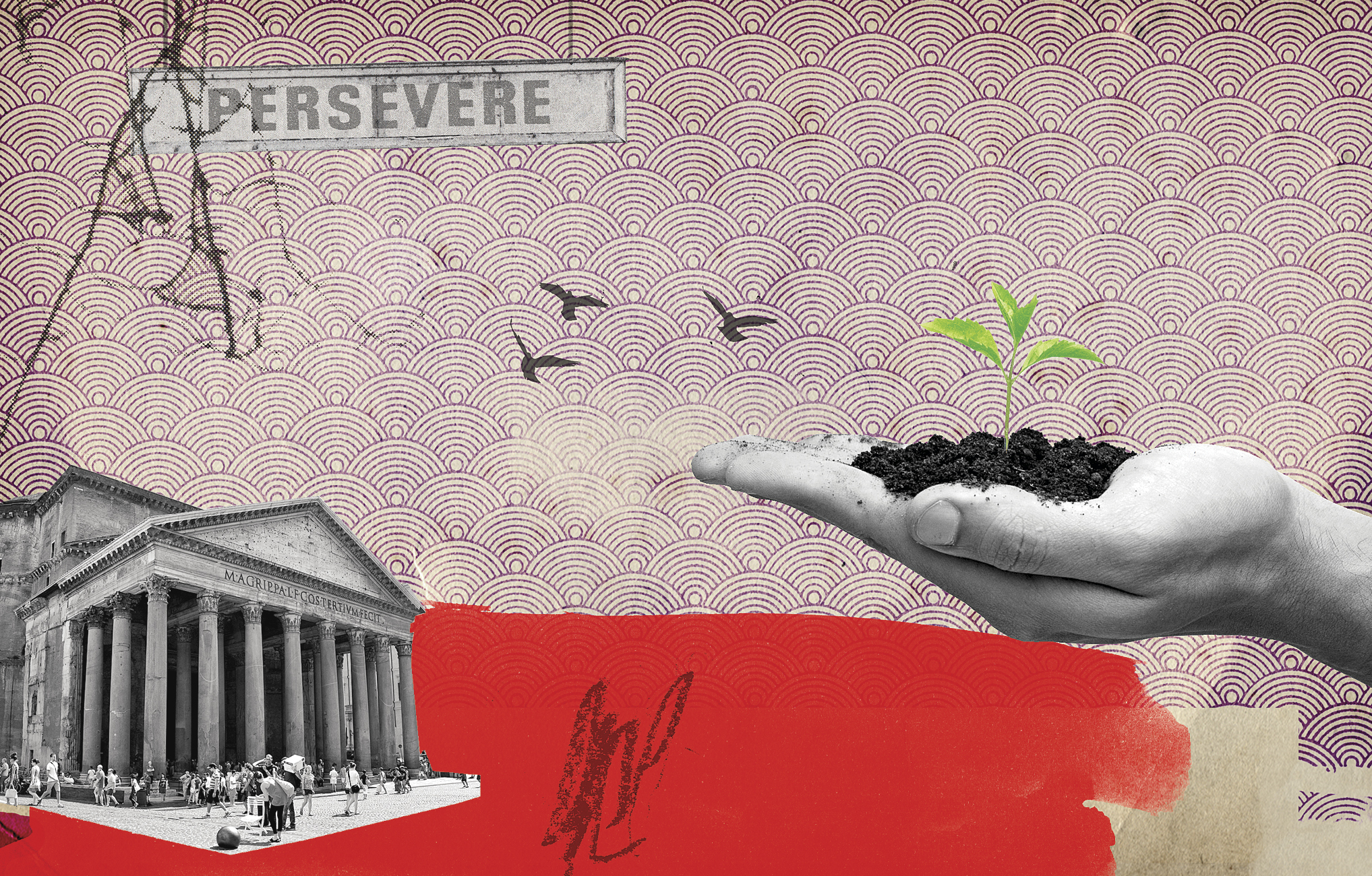
Carole Beebe Tarantelli ’64 / ROME
Psychoanalyst; retired university professor; former member of the Italian Parliament
Dear Carole at 22,
I don’t have much to give you—and looking back at you, I doubt you would have taken it anyway. But I will say that I think that the fact that when you felt something was right for your future, you said yes to it, means that today I can look back without regrets about missed opportunities or wrong choices. With what I now know, I would have advised you not to settle for less; but, then, of course, women didn’t have a lot of career opportunities in 1964, and you had to feel your way.
When you met your soul mate, Ezio Tarantelli, while you were folk dancing at MIT, you said yes and would say yes again, even though it meant uprooting and moving to Italy and, ultimately, facing tragedy when he was assassinated by Red Brigades terrorists when he was 43.
I don’t think there is any way to prepare for tragedy, and my only advice about what to do if it strikes is to take care of yourself. Do what you can to survive, for yourself and for your children. But one piece of advice I would give to any young woman starting out: Prepare for your future with the knowledge that tragedy can strike anyone. In my case, it was violence, but it can be in the form of accidents, illnesses, even divorce. And if it does, always be in a position where you can provide for yourself and your family. If you can’t, you will face a tragedy within the tragedy.
Today, I am fortunate that you decided at 22 to get a Ph.D.—it later made me eligible for a position at the University of Rome—and then jumped at the chance to take a leave of absence from that doctoral program to work in the depressed neighborhood near MIT. That gave you the opportunity to learn from and help welfare moms and kids. But the choice to undertake training as a psychoanalyst and to accept a candidacy to the Italian Parliament belonged to my maturity. All this has meant that I have been really lucky, as I have loved my work—seeing patients, teaching, writing, working with women who have survived incest, violence, and trafficking. Hard but rewarding.
The one thing you can’t know and certainly can’t predict is the future, and I get pretty nostalgic when I think how hopeful and idealistic you were at 22. Until tragedy strikes, you have no idea that it divides your life into a before, when you can be hopeful, and an after, when you can still be idealistic but living means trying to survive it. But I can testify that life can be rich even then.
Persevere, dear,
Carole
Shirlee Taylor Haizlip ’59 / Los Angeles
Author; advocate for film preservation; former public-television executive
Dear Miss Shirley,
I reach through and across the mists and mysteries of time to plant the seed of social activism squarely and deeply in the center of your 1950s activist spirit. Nourish it daily. Include in your work the good and well-being of your people.
Make it your job and priority, all the days of your life, to help those black people who have not had your opportunities or experiences. Every morning, look in the mirror and say, “I refuse to accept the expectations of the entitled.”
Use every variegated gift that Wellesley showered on you to help those whom most people do not see or pass by unmoved. Know that if each of us helped dozens, thousands would lead far better lives.
Shower your assistance on people of color because they have fewer resources, fewer options, fewer better angels, fewer allies who have their best interests at heart. Remember that even 150 years beyond slavery, a too-great number of souls are still relegated to slave quarters and slave jobs.
One of your most important challenges is to work assiduously to help blacks and whites alike to understand the horrific impact of slavery on American blacks. Its effects still permeate the black experience in America like a funeral shroud. Its poisonous legacy continues to besmirch black American life. Despite the wonders of a black president, the double demons of discrimination and prejudice have not been exorcised. They travel mostly underground.
Some people still believe that success is a matter of working hard and having good breaks. For black people, those are just two of many ingredients. Some continue to blind themselves to the inequities that have piled up in front of countless doors, blocking them firmly shut. No matter how many barriers have been broken, honors have been awarded, appointments have been made, the black cloud of racism never goes away.
Part of your job, dear graduate, is to knock down the black Berlin Wall. In its place build a colored museum where you house for easy access the chains, whips, hot boxes, and other instruments of our shared dark past, pun intended.
Our hair, our skin, our features, our dialects, although here for 500 years, still mystify.
Don’t pretend the barriers do not affect you. Everyone from judges to janitors makes assumptions about you, usually incorrect. Especially when they hear you went to Wellesley.
Finally, you must fight the continuing injustices and inequities that cause the prisons to be swollen and the schools to be forsaken. Use every single gift that Wellesley bestowed on you to help those we pass by like unseen ghosts. That, my dear girl, is your task for life.
Use the double bind for the ultimate outreach,
Shirlee
Maud Hazeltine Chaplin ’56 / Dover, Mass.
Virginia Onderdonk Professor of Philosophy, emerita, Wellesley College; former dean of the College and class dean
Dear Maud at 21,
Nobody writes mistakes into their life plan. But at least one can make room for them. You were almost as prudent as an old lady. Loosen up, I now say. You were asking: “Will I ever get married?” Marriage was what one did in 1956. In your senior year at Wellesley, you had been asked to be a bridesmaid five times. But nobody had asked you to be his one true love. You were quite sure no one ever would—at least not anyone you would like to marry.
I ended up choosing a marriage partner because he was smart, witty, and good company. Never before had I dated a man who suggested that we go hear Eleanor Roosevelt speak at Harvard or see Racine’s Phèdre performed in the original French. But I wasn’t in love. My brain told me that one does not spend one’s married life in bed. So when he declared his passion for me, I made the mistake of listening to my brain and not my heart. When I walked down that aisle my legs were brave, but my heart was wobbly. That marriage was a big mistake. Three children and five grandchildren later, I realized happiness often comes disguised as disaster.
A few months after I graduated from Wellesley, I walked into my first seminar as a graduate student. The room was already occupied by about eight or nine students and one professor—all male. After I took one of the few remaining chairs, the professor barked: “What are you doing here?”
Puzzled, I replied: “I signed up for this seminar.”
“I won’t have women in my seminar. If you stay, I won’t call on you and I’ll give you a B–.”
B– in graduate school is a code for F. I stayed in my seat. He never did call on me. But I spoke whenever I had anything to say. I got a B–.
That was when I learned that Wellesley isn’t the world. My mistake had been to assume otherwise, but at least I had learned to hold my ground. Getting a B– on your transcript is not a detour to doom. When I was interviewed for my first job at Wellesley, no one asked me about the B–. Instead I was asked how I felt about students drinking in their residence halls.
I wasn’t expecting that question, but then I was not expecting to walk into a classroom and be rejected simply because I was a woman. I wasn’t expecting a sad end to my marriage. So, younger self, make the mistakes, suffer the interruptions and disruptions. You will arrive somewhere you never anticipated.
Don’t forget to have fun along the way,
Maud
Persis Drell ’77 / Stanford, Calif.
Dean, Stanford School of Engineering; director emerita of the Stanford Linear Accelerator Laboratory; professor of physics and material science and engineering
Dear younger self,
First, congratulations! That decision you are making to travel around Italy on a shoestring with two Wellesley friends the summer after graduation instead of working in a high-profile physics research laboratory is exactly right! You have decades ahead of you to work in research laboratories, but a summer in Florence, Siena, Orvieto, and Rome with an art historian and a classics major can never be recreated!
So here is some advice to help you navigate the years ahead:
First: You are about to launch yourself on an adventure. Your future will be filled with a lot of really important decisions about how you want to live your life without any information to be able to see where those decisions will take you. Don’t be afraid to make mistakes. Because really, there is no such thing as a mistake if you make a choice and decide you want to change it later. You will learn from the experience! Just be sure to make the decisions based on your own goals, not the goals others are setting for you.
Second: In your professional life, you are never really going to fit in, so get used to it. Wellesley has given you the time and the environment to allow you to become comfortable and confident as both a physicist and a woman physicist. But now you need to become comfortable with your conspicuousness in the real world, where most physicists are male. Age, experience, and growing self-confidence will all help. Recognize that your different background and your different point of view are an asset to any group, any organization, and any project that you are part of.
Third: Be open to surprises. You absolutely cannot predict what you are going to be doing in five years, much less 30 years. Life will happen. You will have times of great joy and times of sadness; times of good fortune and times of tragedy. You will make your luck in life, and you will make your happiness. Success in life is going to be what you define it to be. Wellesley, with a lot of help from your family, has prepared you to live a life that will fulfill your dreams and aspirations. You are strong enough to make choices. You have the confidence to go after opportunities. You have the courage to take risks. You are going to do things that you cannot even imagine right now.
Enjoy!
Persis
Susan Mcgee Bailey ’63 / Wellesley, Mass.
Executive director of the Wellesley Centers for Women, 1985–2010
Dear Suzy,
You will find this hard to believe, but more than half a century since you graduated, vowing never to take another class again, anywhere, ever, I am writing from my house only steps from the Wellesley campus. Not only have I taken more classes, earned undreamed-of graduate degrees, and become a professor and college administrator, I’ve loved every minute of it. Life is full of surprises.
Hear me out. I remember your dreams in the spring of senior year: traveling around the world to teach in Taiwan, Betty Friedan’s The Feminine Mystique alive in your head. You wanted to learn firsthand about women’s lives. You dreamed of being part of the movement for greater justice and equality. I think you even had glimpses of the complexities inherent in major societal shifts—all those classes in history and the social sciences, all those late-night talks about what was wrong with the world and how our generation was going to change things. I also recall the insecurities that plagued you, how often you doubted yourself, how frequently you felt a complete failure.
Nothing is ever certain. Control is an illusion. Doubts are part of most days for most people. It isn’t just you. I wish you could have understood this earlier. And plans? Don’t worry quite so much about exact plans; just stick with your dreams. Then take the step in front of you that seems in keeping with the dream. Then take the next one and the next. Not everyone will approve. You won’t always be successful. Change comes hard, and it scares people. Don’t let it scare you.
I know you believe you want to change the world, not populate it. But your daughter, Amy, will be the best surprise of all. She’s faced complicated physical and developmental challenges since her premature birth 45 years ago. Mothering her on your own has erased all hesitations you might have had about pursuing feminist solutions. And it has taught important life-affirming lessons: No one has an exclusive patent on worry. Every parent wonders and worries and hurts inside sometimes. Nor is any life without despair. Tragedy strikes with ruthless abandon. Mothering a disabled child is only one path to this awareness. Joy is also a part of every life, and it too can appear with awesome suddenness.
Your life is in front of you; grab it. Follow those dreams!
Susan
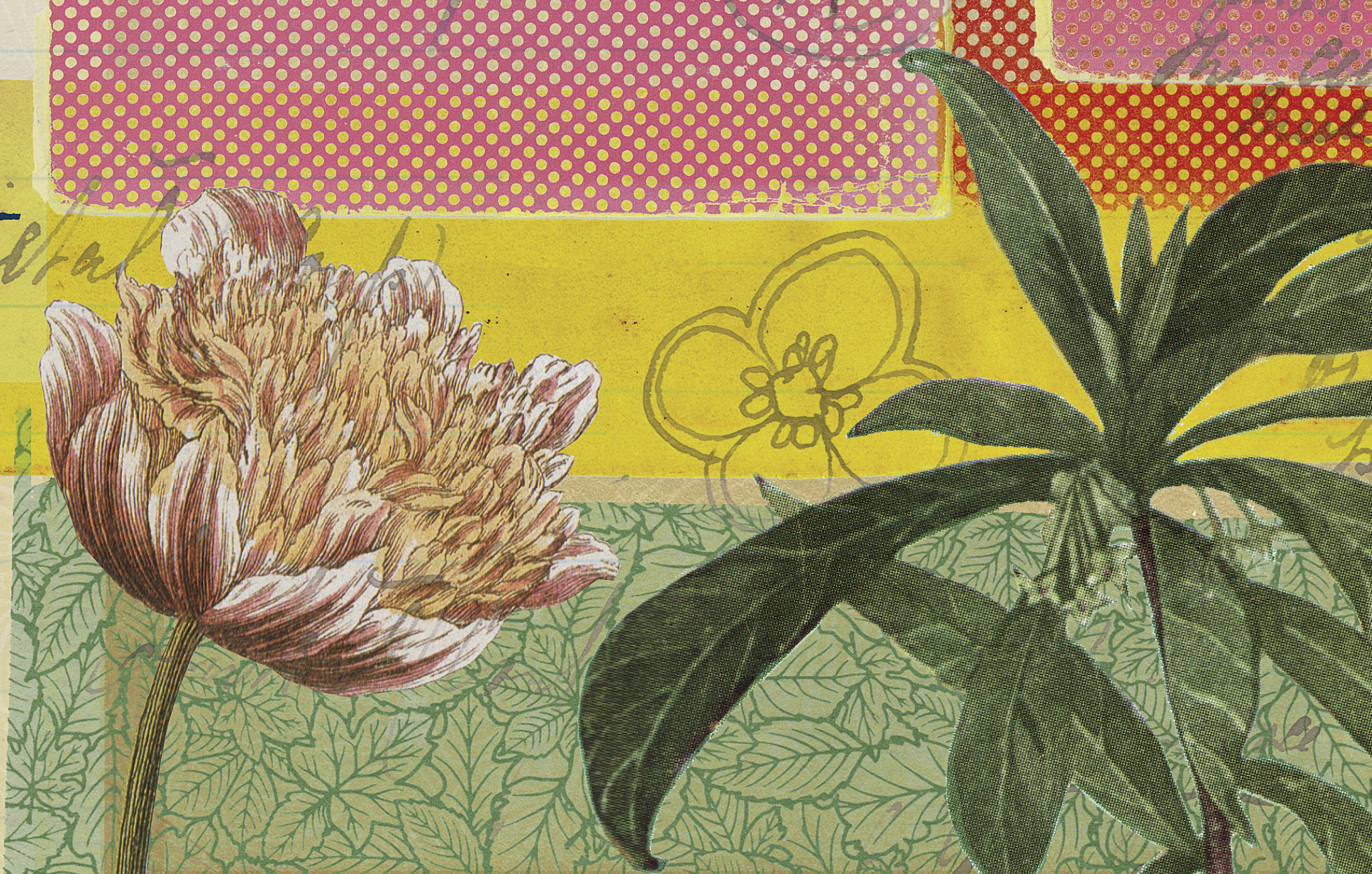
Cathy Song ’77 / Honolulu
Poet
Among Flowering Fruit Trees
Unseen from the road that runs past the College and the town
in a gully neither wild nor well-tended
but a distance to cross to get to the other side,
plumes of blossoms arise on old branches.
You sit in a map of sunlight.
The ground, cold as a damp sponge, yields a succession of blooms
that arrives without hesitation, without
the need for praise.
The smallest flowers relinquish the deepest colors.
A thousand and one scenes can be taken around the lake,
places to perch along trails worn to roots,
thickly shaded knolls smooth as ancient burial mounds,
wide-skirted lawns and a sandboxed beach.
The golden mean of the lake is a classical
template upon which the ever-changing conditions
exhibit, moment to moment, perfect pitch.
You prefer the humble patch of trees and shrubs.
Once found, you return to it whenever the heart constricts.
Despite being diligent, keeping up with your work,
a subtle anxiety persists like the sound of a radio in another room.
There is, for instance, the future to worry about.
In a month you will be leaving
the coming and going to class, to meals, to rehearsals.
Once grasped, the schedule has given you something to hold.
Despite striving, completing the tasks you have been given,
you are the child who, mastering the recital piece, waits
trembling as the last note dissolves to polite applause.
Small pleasures, these brief accomplishments.
Sentences flutter nearby,
drift like cloud wisps, slowly break apart.
Swarming in a splendor of sandals and breezy dresses,
friends descend upon the Vil.
The chance to wear spring clothes brings exposure,
bare skin brushing the shock of sweet air.
Soon windows will fling open to the trumpet blare of Jimmy Cliff
showering the sunbathers in every quad—
“You Can Get It If You Really Want”—
the needle jump starting at the beginning,
the record a tireless wheel.
There is the future to worry about.
You wonder how the others do it.
They seem so sure of themselves.
They seem to know where they are going.
You are so sure of your assumptions,
you assume everyone else is managing better than you.
How wrong your views!
Watch your mind.
Others are struggling too.
The map of sunlight has shifted, changed shape,
in the time you were gone, carried off by the fabled beast of worry,
touching the grass that grows without assistance.
Come back to this never to be repeated moment of leaves and light,
as it is, just so.
Once found, you will return to it gladly,
the only true resting place,
each moment unfolding,
and, because there is no other path,
accept with ease the burden of uncertainty.
